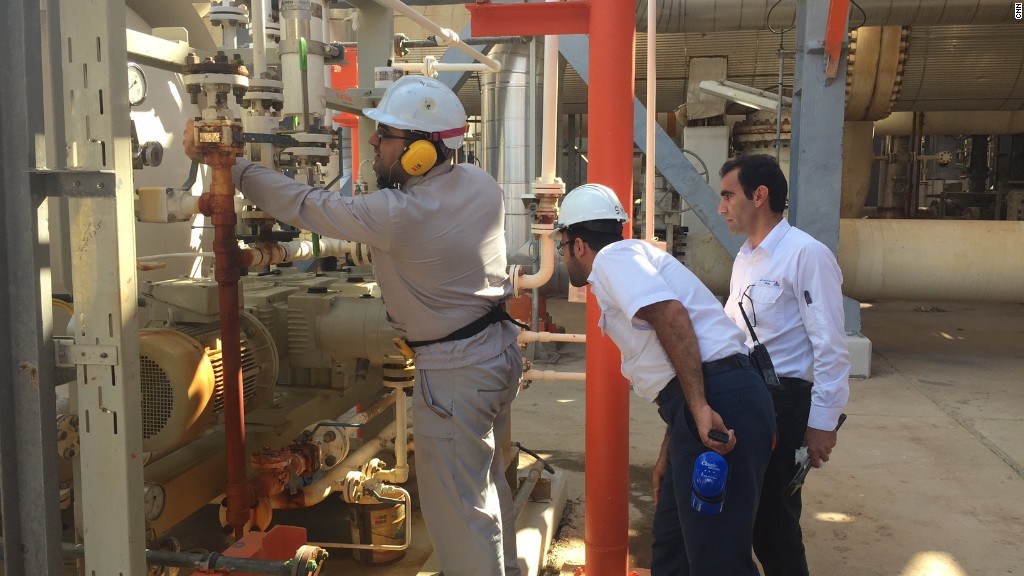
If there's one country that needs to pump more oil, it's Iran. And if there's one nation that needs to buy more crude, it's India.
As luck would have it, this is a match made in heaven.
Iran has been upping its oil production since it was freed from sanctions in January. Much of the crude has been sold to India, which maintained close ties with Tehran while the trade restrictions were in place.
Indian imports from Iran have nearly tripled since January, hitting 540,000 barrels per day last month, according to Genscape, which studies commodity markets.
India is well positioned as a buyer because many of its refineries were built to process Iranian-grade crude. Genscape data show most of the new Iranian barrels have been shipped to a refinery in the western state of Gujarat, displacing imports from Iraq and Nigeria.
India is growing faster than any other major economy, and it needs more energy. According to the International Energy Agency, the country's demand for oil will grow by a whopping 300,000 barrels per day in 2016.
"India could be replacing China as the main engine of global demand growth," the IEA said this week.
Related: OPEC pumps more oil despite fragile demand
Low global crude prices have only sweetened the deal for India, which relies almost entirely on imports for its oil. Every dollar drop in global prices saves the country about $1 billion a year.
There is room for the India-Iran relationship to grow further. Major oil producers meeting this weekend in Doha may agree to freeze production, but Iran has made clear it will continue to increase output until it has regained much of the market share it lost under sanctions. It wants to pump 4 million barrels a day -- up from 3.3 million at present.
Related: Oil producers face stark choice in key meeting
Tehran and New Delhi could extend their collaboration into other fuels. They've revived talk of an Iran-Pakistan-India pipeline that would carry liquid natural gas.
For India, increased cooperation is part of a long-term strategy. Despite pressure from the United States, India refused to participate fully in the U.S. and EU-led trade restrictions on Tehran.
During sanctions, India legally paid for small amounts of Iranian crude with rupees that were deposited in a holding account. Iran was then able to buy Indian goods with the funds. As a result, Indian exports to Iran nearly doubled between 2009 and 2013.


